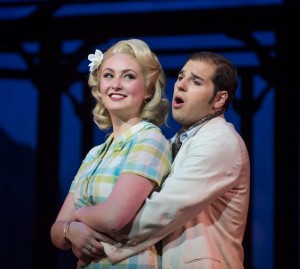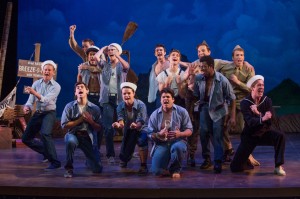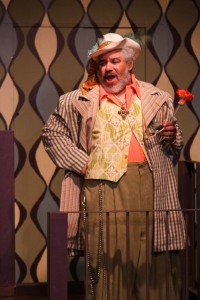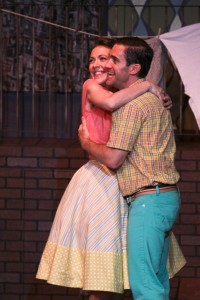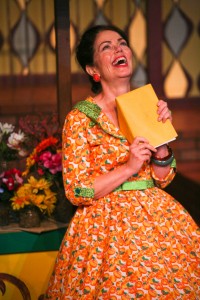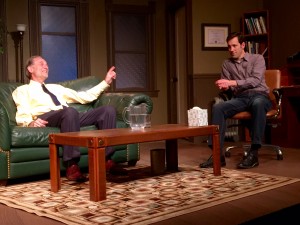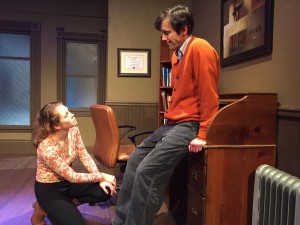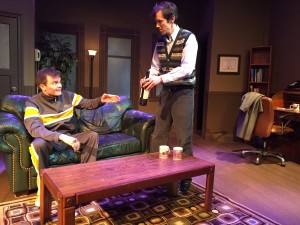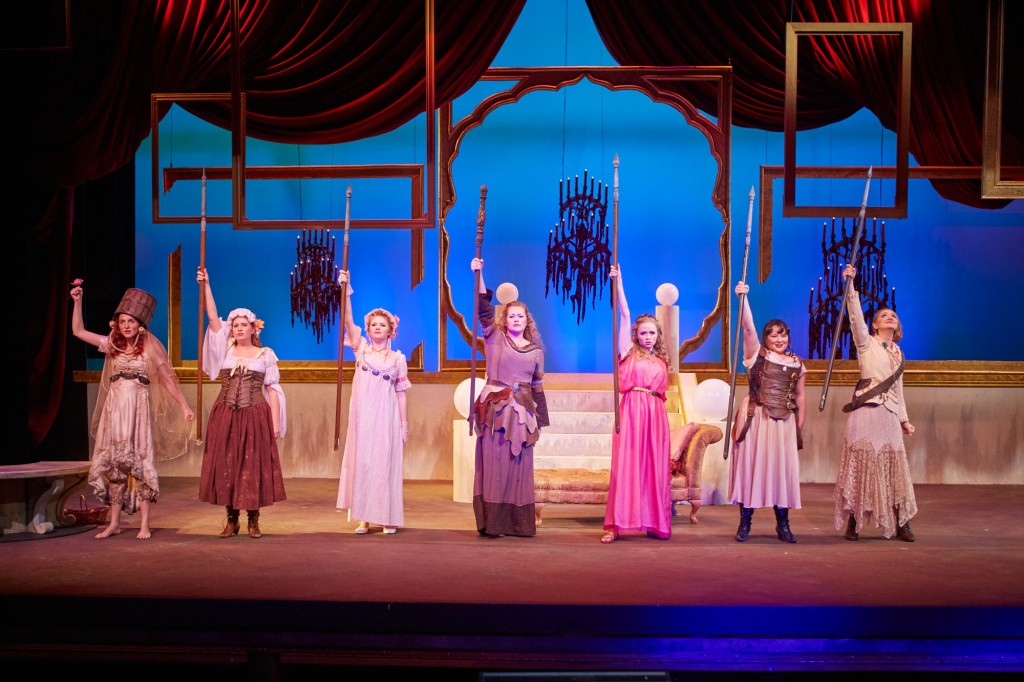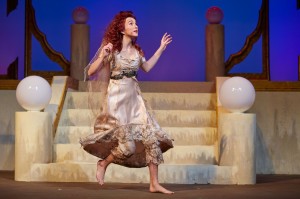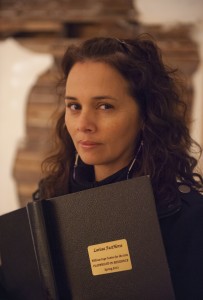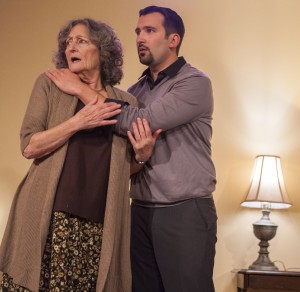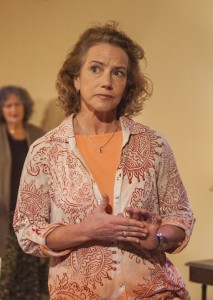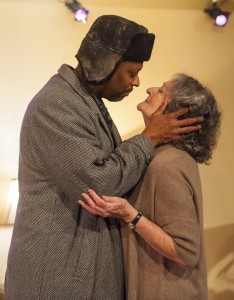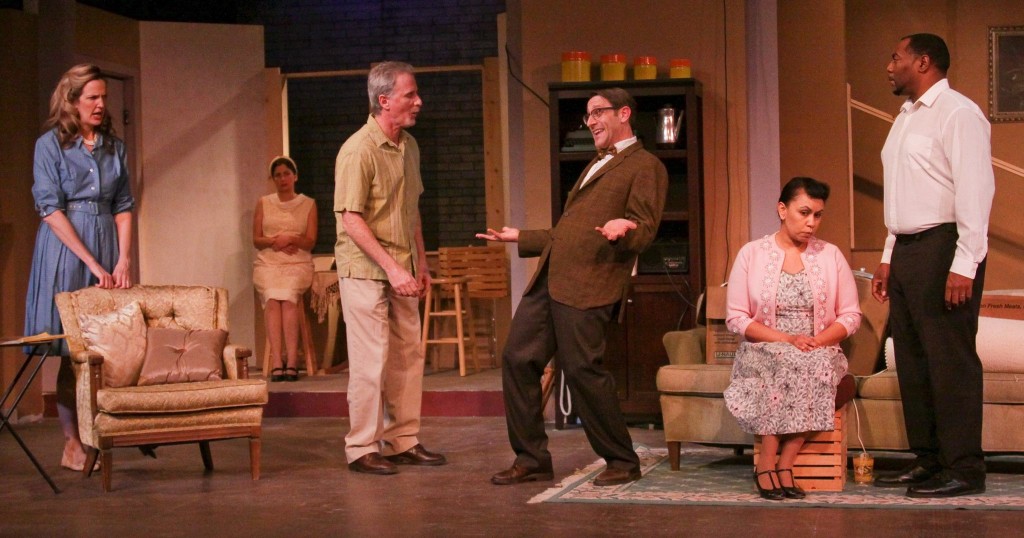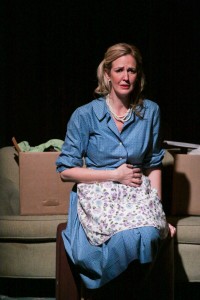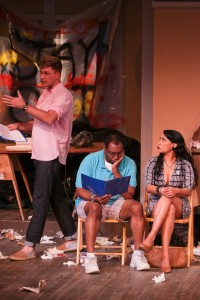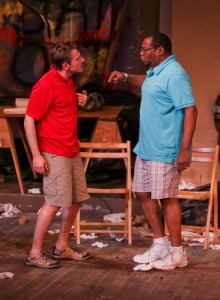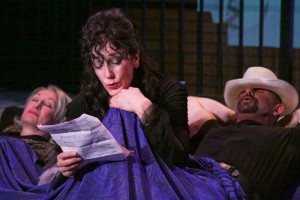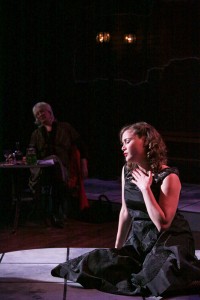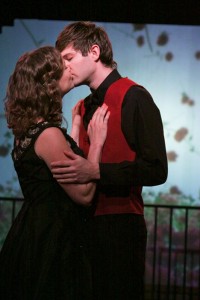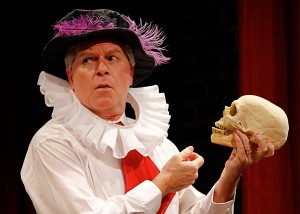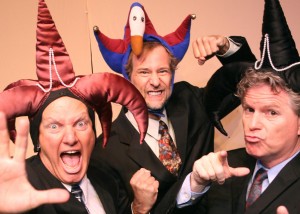Reviewed by Suzanne and Greg Angeo
Members, San Francisco Bay Area Theatre Critics Circle
Fresh and Lively “South Pacific” a Highly Watchable Kickoff to SRT’s 44th
The Summer Repertory Theatre Festival has been celebrated at Santa Rosa JC for 44 years now. For the uninitiated, the SRT festival features scores of theatre students, including locals and those from various universities and colleges across the country. It’s remarkable, but this is one of the few remaining repertory theatre companies in the United States. The company consists of stock actors, each having a role in multiple shows. This way, they are exposed to playing vastly different characters in different plays over the course of a season, a real learning experience and trial by fire for many. One of the most beloved musicals by Rogers and Hammerstein, “South Pacific”, is one of three festival shows being presented in the 75year-old 400-seat Burbank Auditorium on the JC campus.
First presented on Broadway in 1949, “South Pacific” was a smash hit, loosely based upon an anthology of short stories called “Tales of the South Pacific”, about island life during World War II, written by noted author James Michener. The story, released as a classic musical film in 1958, has become a long-time favorite that transcends the decades. Its sweet, gentle humor and social consciousness (unusual for the day) seems more timely than ever. And then there’s that music…gorgeous and highly singable, the kind of stuff you just can’t get out of your head, or your heart.
The production team under director James Newman really does justice to this wonderful piece. There are the usual suspects in local theatre – during the overture, the trumpets were a bit off-key – but overall, this is a remarkable achievement by triple-threat performers who hopefully will stay in the game and go on to even bigger successes.
The true standout and incandescent star of the show is Emily Kristen Morris as Ensign Nellie Forbush, the happy-go-lucky “Cockeyed Optimist” who finds herself in a risky romance. Morris is in fine voice, and has the acting and dancing chops to match. Nellie’s unfortunate love interest is Emile, a French expatriate who appears to be hiding something. Noah Weisbart’s portrayal often comes off a bit stiff, and while he possesses a quality baritone he may be singing below his range at times. Some awkward staging also obscures the chemistry between Emile and Nellie in their first scenes together, but they recover.
Noteworthy performances include a winsome Michaela Jose as Bloody Mary, who delivers a fresh, sincere interpretation of the role with songs like “Bali Hai” and “Happy Talk”; Riley McFarland plays Lieutenant Joseph Cable, whose romance with an island native girl Liat (played by talented dance captain AnnEliza Canning Skinner) underscores the racial tensions at the heart of the story. McFarland gets off to a slow start but grows into his role.
Snappy choreography by Anne McAlexander combines with orchestration by music director Nancy Hayashibara and ensemble vocals by the cast on some really memorable numbers: “There is Nothin’ Like a Dame”, the rousing, enthusiastic tribute to the female sex, is performed with great harmony by those Navy boys; “I’m Gonna Wash That Man Right Out’a My Hair” is simply adorable, performed with klutzy, clownish delight by Morris and ladies of the chorus, joined by some of the guys for a laugh. But the high point of the show comes with the opening of Act II. It’s then that we are able to witness a true rarity on local stages – a tap dance number, done really, really well. Its high-energy stomping percussion is exciting to see and over much too quickly. More, please!
Of course, it’s always nice to watch attractive young people romping about onstage. But when their boundless energy and budding talent is this laser-focused on their performances, it becomes a joyful experience. Their lively spirit carries the show, rolling right over any opening-night jitters or stumbles of inexperience.
If you’ve only seen the film, you are in for a surprise, because there are striking differences from the stage production in the way the story unfolds. But with lots of great music performed by this kind of talent, there’s no way you can go wrong. SRT’s production of “South Pacific” is the perfect summer confection, presented with heart and soul.
When: Now through August 8, 2015
Performances: Weekdays (except Mondays) and weekends
2:00 p.m. matinees, 7:30 p.m. or 8:00 p.m. evenings
(See www.SummerRep.com for details)
Tickets: $18 to $25
Where: Burbank Auditorium at SRJC
1501 Mendocino Avenue
Santa Rosa, CA 95401
(707) 527-4307
Other shows being presented by SRT Festival at SRJC:
“Emma” by Jane Austen (Newman Auditorium)
“Peter and the Starcatcher” (Burbank Auditorium)
“Tartuffe” (Newman Auditorium)
“Little Shop of Horrors” (Burbank Auditorium)
Festival runs through August 8, 2015



